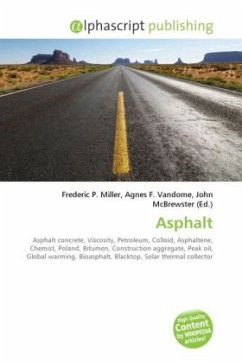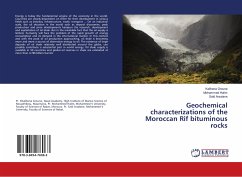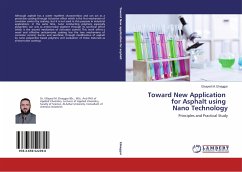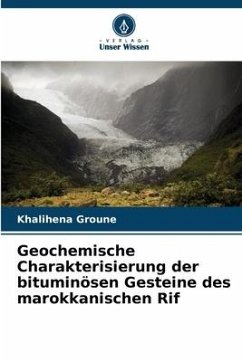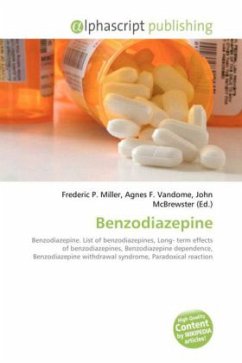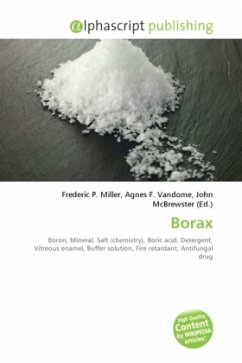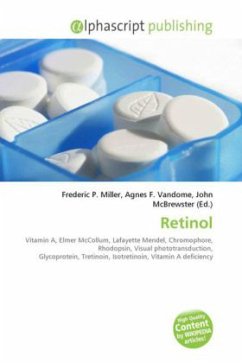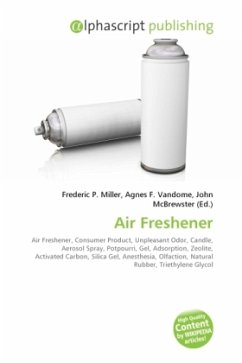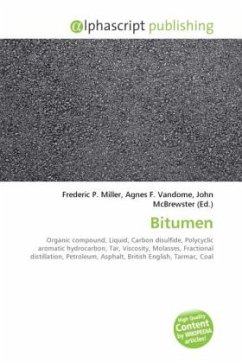
Bitumen
Versandkostenfrei!
Versandfertig in 6-10 Tagen
52,99 €
inkl. MwSt.

PAYBACK Punkte
26 °P sammeln!
High Quality Content by WIKIPEDIA articles! Bitumen is a mixture of organic liquids that are highly viscous, black, sticky, entirely soluble in carbon disulfide, and composed primarily of highly condensed polycyclic aromatic hydrocarbons. Naturally occurring or crude bitumen is a sticky, tar-like form of petroleum which is so thick and heavy that it must be heated or diluted before it will flow. At room temperature, it has a consistency much like cold molasses. Refined bitumen is the residual (bottom) fraction obtained by fractional distillation of crude oil. It is the heaviest fraction and th...
High Quality Content by WIKIPEDIA articles! Bitumen is a mixture of organic liquids that are highly viscous, black, sticky, entirely soluble in carbon disulfide, and composed primarily of highly condensed polycyclic aromatic hydrocarbons. Naturally occurring or crude bitumen is a sticky, tar-like form of petroleum which is so thick and heavy that it must be heated or diluted before it will flow. At room temperature, it has a consistency much like cold molasses. Refined bitumen is the residual (bottom) fraction obtained by fractional distillation of crude oil. It is the heaviest fraction and the one with the highest boiling point, boiling at 525 °C (977 °F). In British English, the word 'asphalt' refers to a mixture of mineral aggregate and bitumen (or tarmac in common parlance). The word 'tar' refers to the black viscous material obtained from the destructive distillation of coal and is chemically distinct from bitumen. In American English, bitumen is referred to as 'asphalt' or 'asphalt cement' in engineering jargon. In Australian English, bitumen is sometimes used as the generic term for road surfaces.



